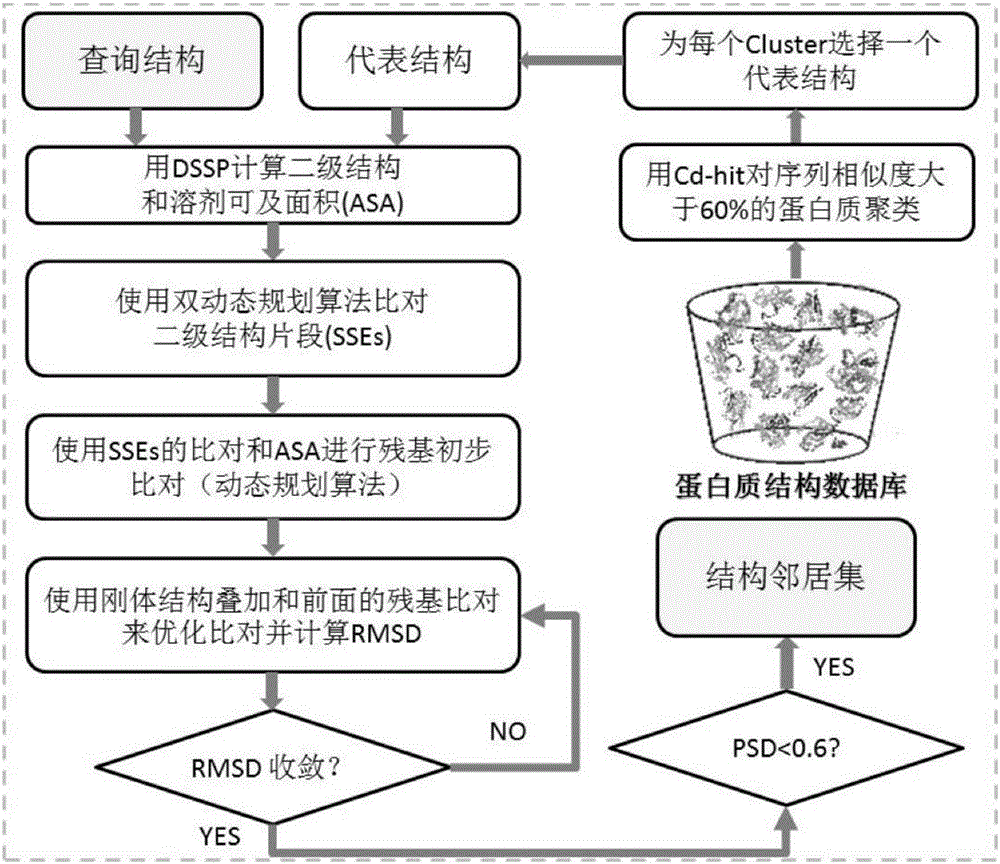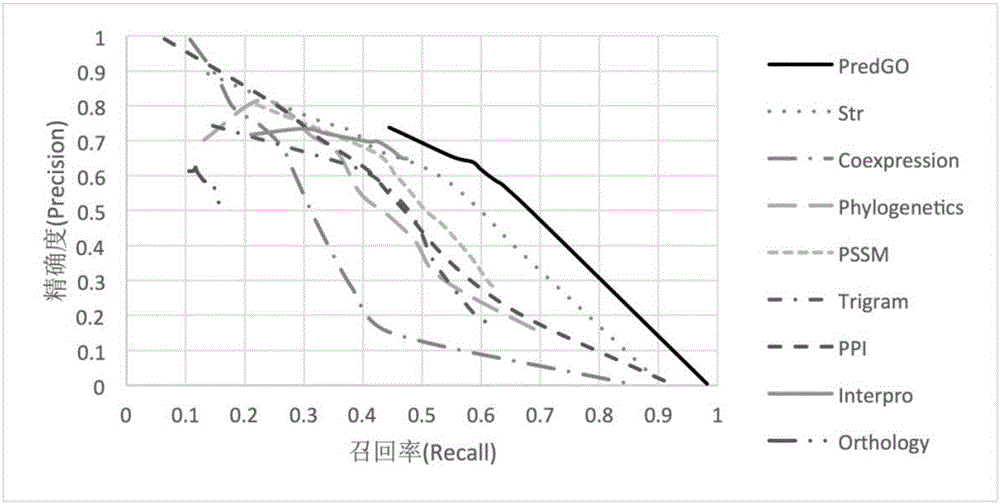Marking method and system for protein functions
A protein function and protein technology, applied in the field of bioinformatics, can solve problems such as low efficiency and high cost of biological experiment methods, and achieve the effect of solving low efficiency, high cost and improving performance
- Summary
- Abstract
- Description
- Claims
- Application Information
AI Technical Summary
Problems solved by technology
Method used
Image
Examples
Embodiment 1
[0031] This embodiment discloses a protein function labeling method, such as figure 1 shown, including:
[0032] Step S1. Find the first-order structural neighbors according to the representative structure of the protein to be queried.
[0033] In this step, protein functions can be inferred based on their structural similarities, especially distant three-dimensional structural similarities. For a given protein Q to be queried, obtain a representative structure M from the PDB library or the homology model database, and use the structural neighbor search algorithm to find all the structural neighbors of M in the protein structure library to form the first-level structural neighbors (N1, N2 ,...).
[0034] Step S2, searching for the homologous sequence of the protein to be queried, and finding the neighbors of the secondary structure of the protein to be queried according to the representative structure of the homologous sequence.
[0035] In this step, all homologous sequenc...
Embodiment 2
[0071] Corresponding to the above method embodiments, this embodiment discloses a protein function labeling system, including:
[0072] The first processing module is used to find the first-order structure neighbors according to the representative structure of the protein to be queried;
[0073] The second processing module is used to search the homologous sequence of the protein to be queried, and find the neighbors of the secondary structure of the protein to be queried according to the representative structure of the homologous sequence;
[0074] The third processing module is used to evaluate the first possibility of the function appearing in the protein to be queried according to the distribution of a certain function of the first-order structure neighbors and the second-order structure neighbors; and based on all the The distribution of homologous sequences against the function evaluates the second possibility that the function occurs in the protein to be queried;
[00...
PUM
 Login to View More
Login to View More Abstract
Description
Claims
Application Information
 Login to View More
Login to View More - R&D
- Intellectual Property
- Life Sciences
- Materials
- Tech Scout
- Unparalleled Data Quality
- Higher Quality Content
- 60% Fewer Hallucinations
Browse by: Latest US Patents, China's latest patents, Technical Efficacy Thesaurus, Application Domain, Technology Topic, Popular Technical Reports.
© 2025 PatSnap. All rights reserved.Legal|Privacy policy|Modern Slavery Act Transparency Statement|Sitemap|About US| Contact US: help@patsnap.com



